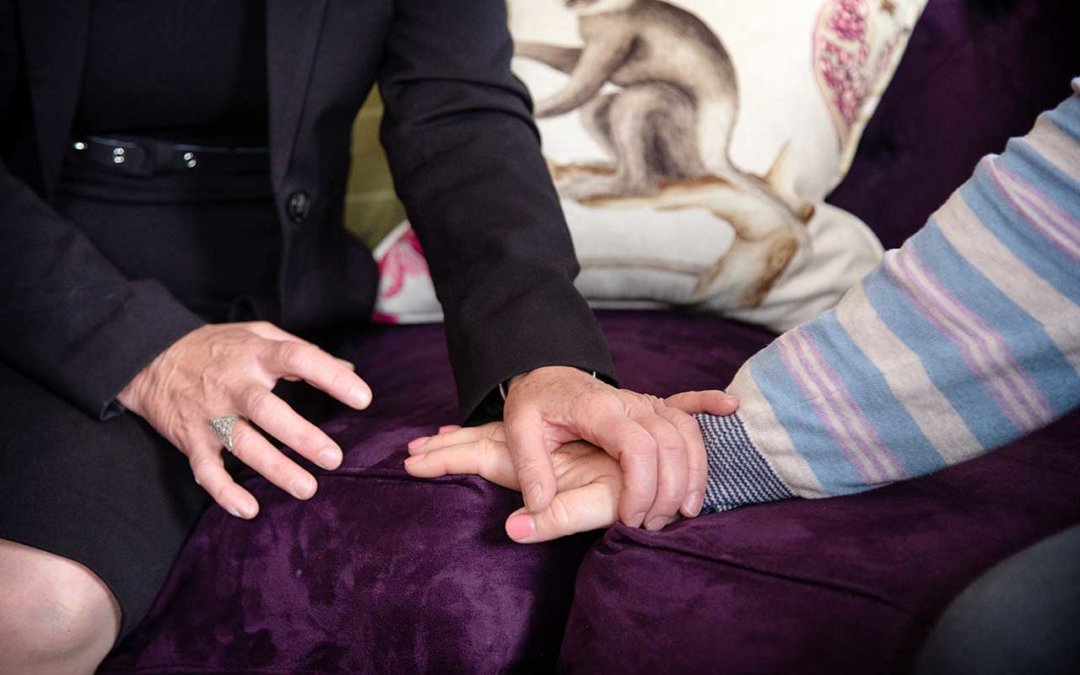What do you say to someone who has been bereaved? That has to be such a hard conversation. And because it is, we tend to avoid it don’t we?
The more awkward we feel, the more we back away both emotionally and physically – especially in a new socially distancing environment. Ironically, that’s the one thing we shouldn’t be doing. In this blog, managing director James Morris explains why.
As a funeral director, I meet bereaved families daily and hear their experiences, both good and bad. A man who lost his wife of 54 years summed it up: “I’ve been bereaved. I’ve not contracted a contagious disease.” Sadly his experience is a common one. And a in a post Covid world, the bereaved are facing even tougher futures.
Grieving families report examples of friends or neighbours crossing the road to avoid speaking to them because, it turns out, they’re too awkward to acknowledge them (and it’s not because they’re socially distancing!). By avoiding those experiencing a loss – and not having that tough conversation – just adds to their feelings of pain and isolation. Ouch – it’s a horrible realisation as it’s probably something you are relating to now?
Drawing on my thirty years of working with bereaved families, I’ve put together a summary of some do’s and don’ts to help you help someone you know who has just experienced a loss.
Do
- Speak to them – they are bereaved not lepers
- Speak about their loss – it is probably the only thing on their mind
- Speak about the deceased – the person is still real to them
- Offer practical help – but only if you can deliver
- Show kindness – do what you’d like to receive if it were you
- Keep in touch – grief is a long journey; cards, calls, visits help where current restrictions allow
Don’t
- Assume their loss is devastating – their sadness may be tempered by a strong sense of relief after, for example, a long illness
- Say you know how they feel – you don’t, even if you have suffered a similar loss
- Talk about your own feelings or losses – it’s not about you
- Ignore them – this is when they need you most
- Avoid the subject – their need is greater than your awkwardness
- Pretend – this is a time to be real, their loss is VERY real
- Make a joke – a common reaction but seldom appropriate
Doing or saying nothing can be damaging. And we’ve all been there – even me in my earlier years. I hope this summary helps you, in turn, support someone you work beside, care for or love dearly.
If they need specialist bereavement support, we have access to a variety of resources: books, counselling or bereavement courses. Often we can respond quickly, confidentially and it’s totally free – click here for information or contact us by phone.
Eric P. Massie, here for you when you need us the most.



